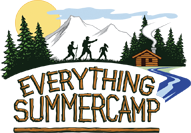Hey, Camp Folks!
Thanks for joining us once again for today’s post in which we’ll discover another Adage Origin where I deep dive all those popular phrases and sayings that everyone knows, but seldom understand why they mean what they mean. They’re so built in to our language that we may not even realize we’re using them. Today’s phrase is ‘The Grass is Always Greener on the Other Side of the Fence’.

People often times shorten this phrase to ‘The Grass is Always Greener on the Other Side’ or even just ‘The Grass is Always Greener’, but it all means the same thing. It’s pointing out the notion we’ve all had that the next person over has it better than we do—that, maybe under a different set of circumstances, our life could be a little nicer (or a lot nicer). The phrase is most commonly used to remind people that this is never really the case and just a notion in their head.
The origins of some other phrases can be rather unsure as to the time it was coined and who coined it. This one, however, was written in 1545 by a man named Erasmus of Rotterdam in England. But he didn’t write ‘The grass is always greener…’. No. He wrote that “The corne in an other mans ground semeth euer more fertyll and plentifull then doth oure own.”
Translated to our current speech, it would say, “The corn in another man’s ground seems ever more fertile and plentiful than our own does.” But what’s this guy talking about corn for? The phrase is about grass, isn’t it? Well, it’s likely that the corn was replaced with grass to make the saying more universal. Not everyone grows corn. Almost everyone has at least a little bit of grass.
Interestingly enough, corn (which is typically considered a vegetable) is actually a grain with the botanical classification of a grass. So corn is a grass anyhow. Both are also green, like the color associated with envy which could have also been an influential element when the final version of this phrase was crafted.
And, as I already mentioned, this phrase is most often used as a reminder for people to be grateful for the things they have. Be grateful for everything in your life including your grass (and corn if you have it) and, as always, thanks for reading!
- John



